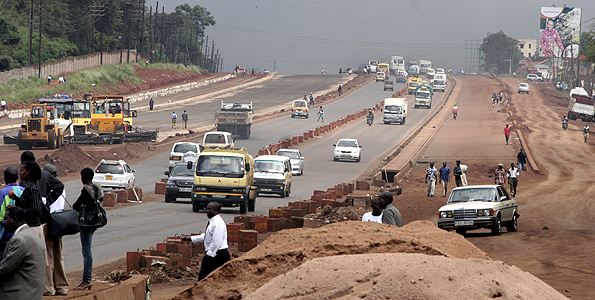During his recent trip to Africa, President Barack Obama launched a $7 billion program to electrify rural Africa. Many Africans lauded his efforts but considered it a small amount for a project that will require perhaps hundreds of billions of dollar.
The plan would accentuate efforts already under way by many African governments to spur economic growth by improving infrastructure. Building roads, bridges and power stations is an expensive effort that requires money and increasingly, the issuance of international bonds is becoming the preferred methods of raising capital for such projects.
In recent months, Zambia and Tanzania issued international bonds, securing relatively low interest rates as investors’ poured in looking for higher returns than they can get elsewhere. Last September, Zambia sold debt at an interest rate only slightly higher that of Spain, while Rwanda’s $400 million worth of bonds was oversubscribed.
There’s much more in the pipeline. Nigeria, Angola and Kenya have all signaled their intention to tap international bond markets in the very near future. This year alone, African nations, outside of South Africa, are selling $7 billion of debt, more than in the past five years combined. Their yields, more than double those of developed nations, have lured investors who in the past had been repelled by violence and corruption.
By the end of March 2013, some 11 countries in the region had issued international sovereign bonds, for reasons that include infrastructure building, benchmarking, and debt restructuring, according to a May report by the International Monetary Fund.
The international bond issuances in Africa have mainly involved public debt and have often led to increasing currency risks. Even so, these bonds currently are priced relatively favorably, reflecting good prospects for these economies and strong market demand, the report added.
Market intelligence suggests other countries in sub-Saharan Africa may tap international markets in the near future, taking advantage of favorable global conditions.
Many of these African bond sales aren’t huge amounts and can easily be paid off at maturity. However, for countries with higher debt-to-growth ratios, such as Ghana, there are big risks that investors must keep in mind before forking over their cash.
That’s just one of the problems. The IMF also warns of the risk that increased public spending or investment projects financed by bond issuance may be poorly selected or executed and therefore would not render value for money.
“While most countries in the region are not constrained from borrowing by high debt levels, many could find it difficult to raise sufficient financing for larger deficits in the event of a downturn in economic growth,” said the IMF.
The craze for African bonds is being driven by growth in the emerging markets at a time of stagnation in developed economies. Sub-Saharan African economic growth remained strong this year, with regional gross domestic product rates increasing in most countries, excluding Nigeria and South Africa. Projections point to a moderate, broad-based acceleration in GDP to around 5.5 percent in 2013-2014, outpacing all other regions except Asia, and reflecting a gradually strengthening global economy and robust domestic demand.
Investment in export-oriented sectors remains an important economic driver, and an agriculture rebound in drought-affected areas will also help growth. This has prompted many African countries to issue bonds, taking advantage of the international crave for high-yielding investments.
Most of the international investors have suffered low yields in developed markets, where central banks are pursuing various forms of stimulus measures that have depressed the bond market. Uncertainties in the global economy remain the main risk to Africa’s outlook, but plausible adverse shocks would likely not have a large effect on the region’s overall performance, the IMF said













